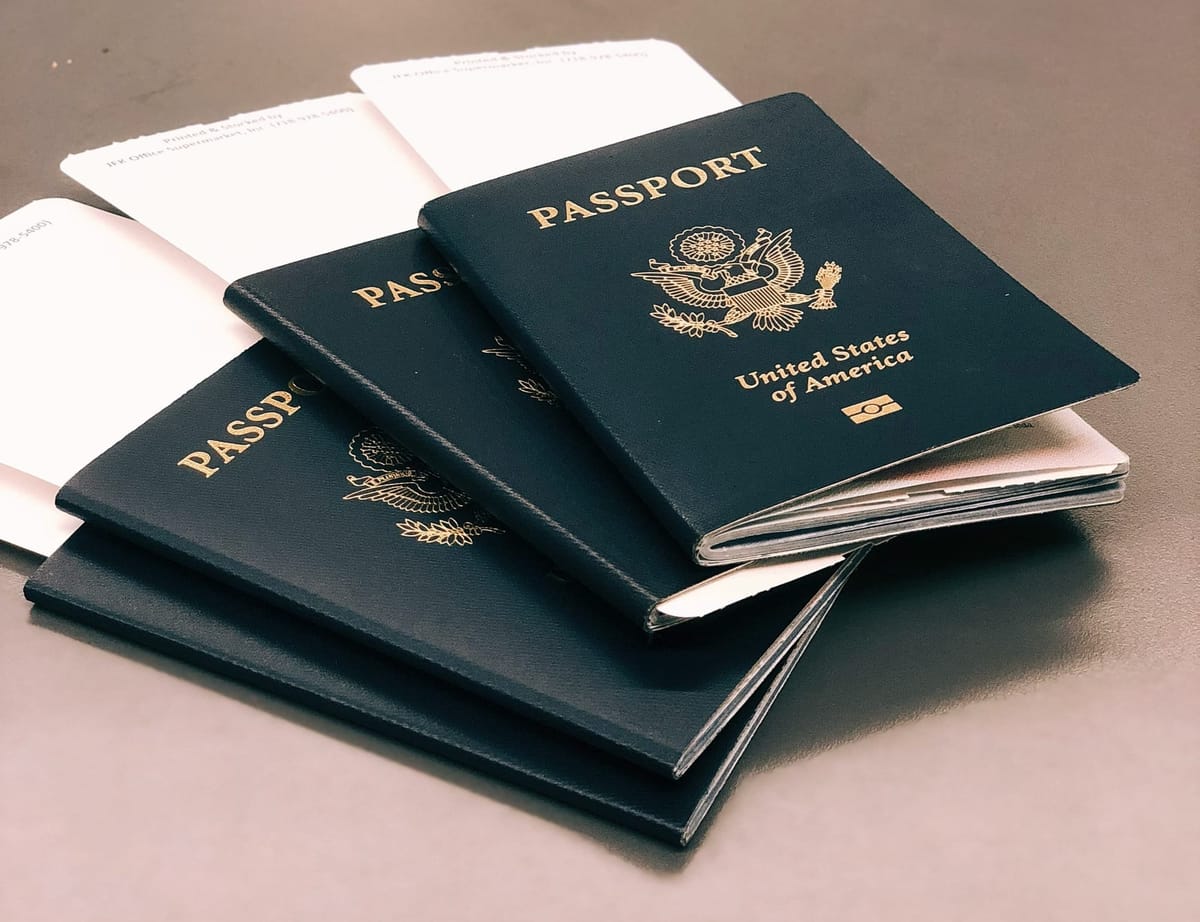State Department Confirms Denial/Delay of Passports for Trans People
A State Department spokesperson confirmed that they will deny or delay passport issuance unless and until an applicant provides "sufficient” evidence of their “binary, biological sex at birth.”
Government policy now requires every US Citizen to establish their “binary, biological sex at birth” in order to receive a passport.
A State Department spokesperson spoke to The Needle about the indications, per The Needle’s previous reporting, that the State Department was denying passports to trans people in the United States.
The spokesperson stated that, “It is the policy of the United States to recognize two sexes: male and female. Government identity documents, including passports and visas, must reflect the individual's biological sex at birth.”
The spokesperson continued “Updated U.S. passport policy requires applicants to indicate on their passport applications their binary, biological sex at birth, either M or F. If the applicant’s biological sex is not sufficiently established, we will request additional information from them.”
They further stated, “Once we have the needed information, we will issue a new passport in the individual’s biological sex at birth.”
The spokesperson stopped short of indicating whether passports would be formally denied for trans people, but a closer analysis of their statements shows that those who cannot “sufficiently establish” their “binary, biological sex at birth” won’t receive passports.
Whether the State Department formally issues denial letters, asks for information, or otherwise doesn’t process the applications of US citizens applying for passports, the effect of these new policies is the same- a de facto ban on trans people getting accurate identity documents.
It is unclear what process the State Department is using to determine if someone has provided evidence to their standards. When pressed for comment on this, the State Department declined to comment, and the original spokesperson did not respond.
Further, the State Department also refused to comment on whether passports with an X marker or that had been previously had a sex marker changed were still legally valid, or if the department would be invalidating them under fraudulent application measures or other regulatory provisions.
The State Department additionally refused to comment on what documents they would require from someone with an amended birth certificate to demonstrate “binary, biological sex at birth.”
However, according to the State Department’s website titled “Sex Marker in Passports”, which an archived version can be viewed here, they reserve the right to invalidate passports.
“The White House issued Executive Order 14168 "Defending Women from Gender Ideology Extremism and Restoring Biological Truth to the Federal Government" on January 20, 2025.
Under the executive order, we no longer issue U.S. passports or Consular Reports of Birth Abroad (CRBAs) with an X marker. We only issue a passport with an M or F sex marker that matches the customer's biological sex at birth.
On November 6, 2025, the U.S. Supreme Court stayed the preliminary injunction issued in June by the U.S. District Court for Massachusetts in Orr v. Trump. As a result, we are only issuing passports reflecting sex at birth and will not honor attestations requesting a preferred sex marker.”
While the State Department website doesn’t link to the ruling itself, the ACLU did publish a timeline of the Orr v. Trump case and its ramifications.
Further down that page, the State Department claims that “All passports are valid for travel until they expire, are replaced by the applicant, or are invalidated pursuant to federal regulations.”
It is unclear what “federal regulations” may be at play in invalidating existing passports, as the State Department declined to comment on a direct question on that topic.
According to the Code of Federal Regulations, there are three reasons an existing passport can be cancelled or revoked.
(1) The bearer of the passport may be denied a passport under 22 CFR 51.60 or 51.61 or any other applicable provision contained in this part;
(2) The passport was illegally, fraudulently or erroneously obtained from the Department; or was created through illegality or fraud practiced upon the Department; or
(3) The passport has been fraudulently altered or misused.
The full regulation can be viewed online.
22 CFR 51.60 governs when the State Department can deny passports, and 51.61 governs additional reasons for denying a passport based on specific drug-related offenses.
The reasons under 51.60 include being in arrears on child support, being significantly delinquent on taxes, being a registered sex offender, being in default on a federal repatriation loan, and other reasons- such as being the target of a warrant for arrest within the US or from another country.
22 CFR 51.60(a)(3), the additional section being referred to, is an unused regulation which has not been written. The State Department appears to be waiting for further instructions on these matters.
A previous version of this article stated that 22 CFR 51.60(a)(3) indicated a regulation that was not yet available to the public. This was incorrect, and we have adjusted the article accordingly. Thank you to Bluesky user @penguinpopup.dev for bringing this to our attention.
If you liked this article, please consider signing up for our email list.
While there, please consider signing up for one of our paid subscription tiers. They start at $9 dollars a month.
Sign up for The Needle
Culture and News: By and For Transsexuals
No spam. Unsubscribe anytime.

